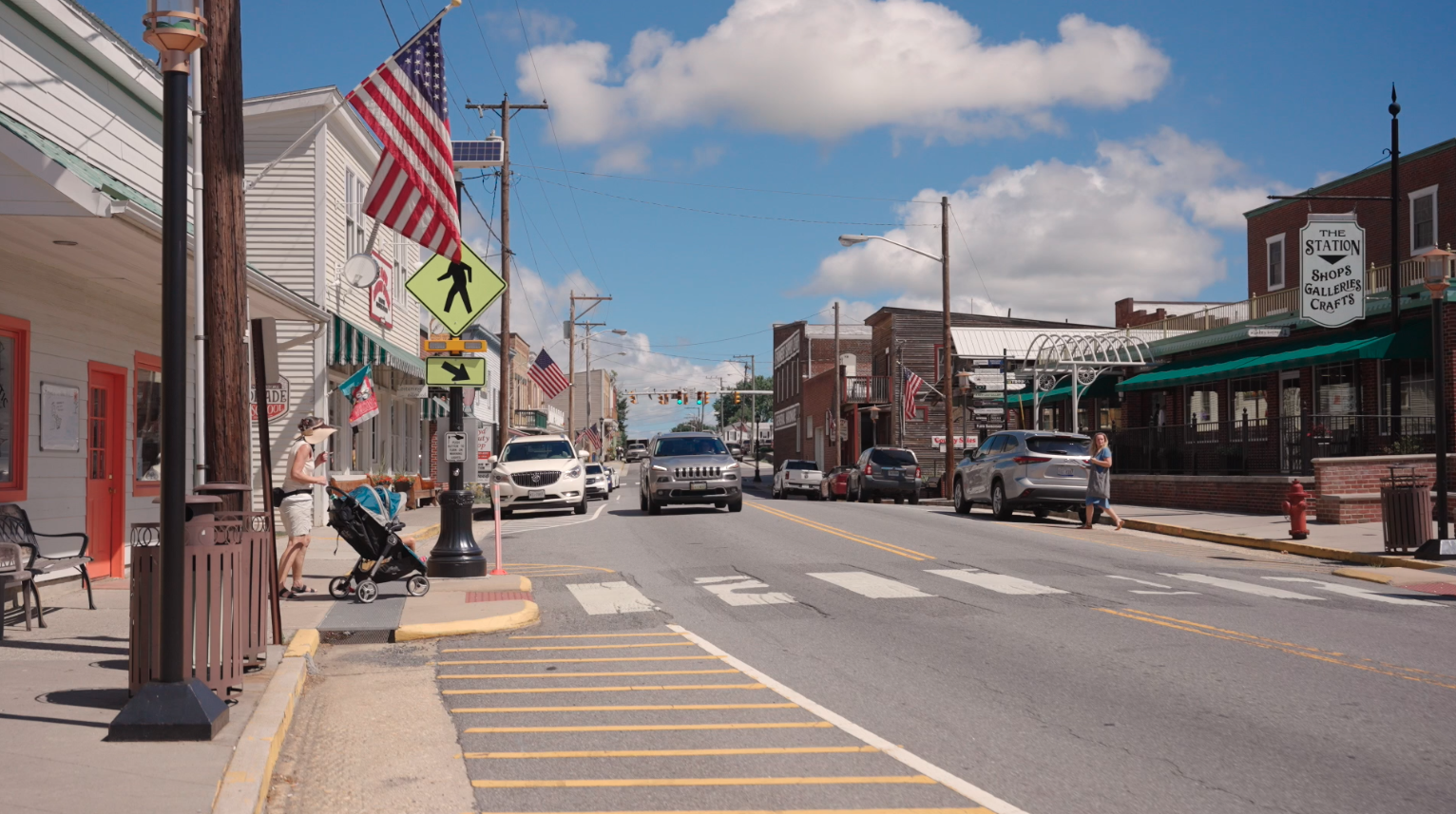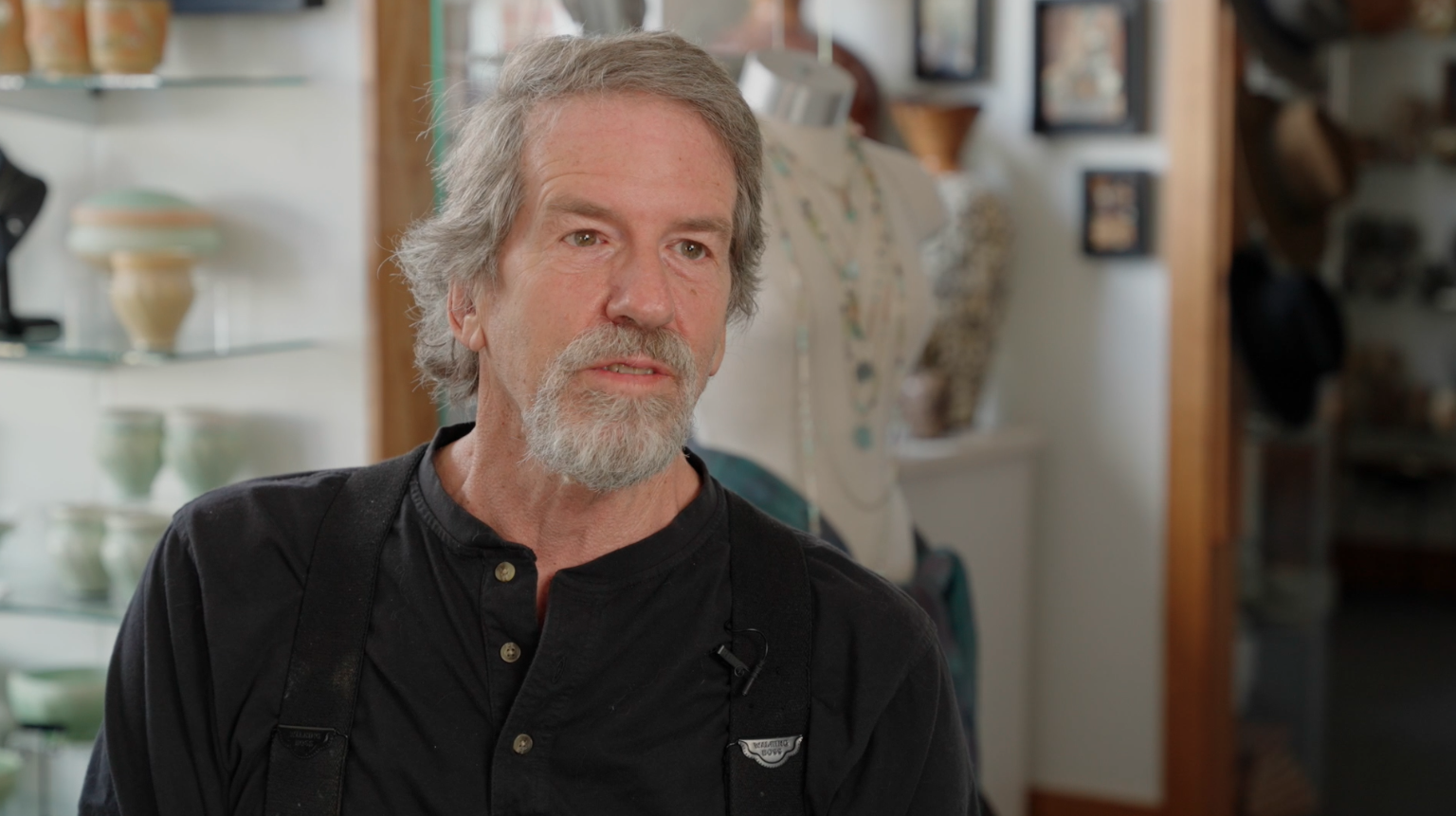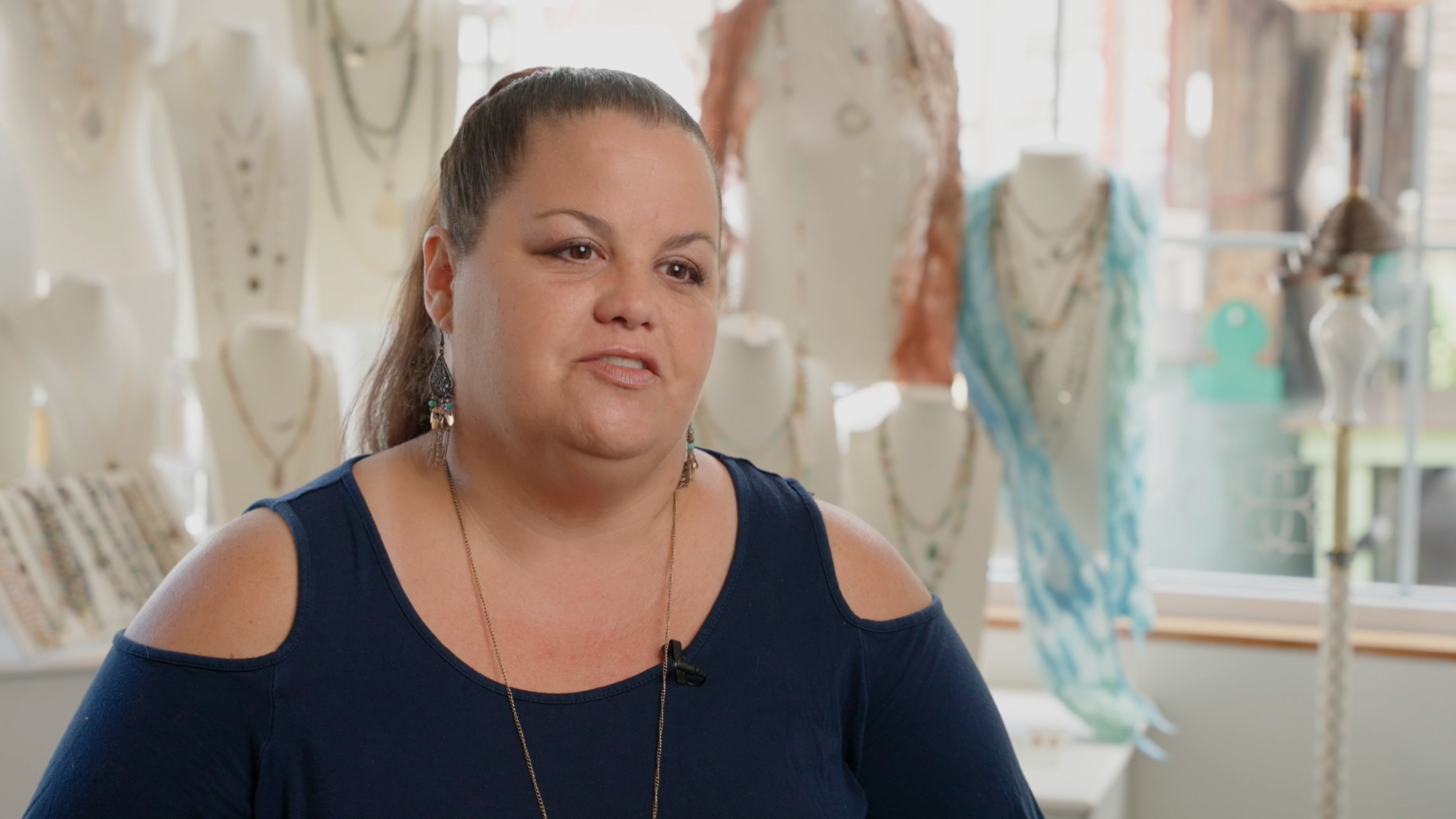Floyd, Virginia, is home to families across generations as well as newcomers who have embraced the town as their own. Like so many other small towns across America, Floyd suffered from the rise and fall of manufacturing – namely, the textile industry. But they were not deterred.
With a unique artisan community, individual investments from citizens, and the engagement of partners like Locus, formerly Virginia Community Capital (VCC), the community came together, reinvented themselves, and found a path to revitalization.
Creating the Vision
The county’s community and economic development director, Lydeana Martin, put it best: Floyd is a special place. It brings together beautiful countryside, a rich arts, crafts, and music culture, and an inclusive spirit that makes residents and visitors alike feel at home. Despite those assets and contributions, however, the early 2000s saw areas of town – downtown Floyd in particular – needing some TLC. Building vacancies and a lack of developmental direction had resulted in potential unrealized. In addition, a lack of accessible, comprehensive, and affordable healthcare was a very real threat to Floyd’s vibrancy.
Determined to make Floyd a place where no one felt “stuck,” a group of community members came together with a desire to make a difference in housing access and small business growth. None of them had a background in real estate development, but they invested their own money in high-potential properties with the belief that if you plant a seed, it will grow. Their vision sparked the engagement of the Town Council and the Virginia Department of Housing and Commerce, and a roadmap to downtown revitalization was charted.
Around the same time, a community-focused healthcare network stepped in and set forth to build a much-needed resource for the county’s residents, installing a foundational aspect of well-being in a once medically underserved part of the Commonwealth.
While individual and institutional investment was paramount to the initial momentum of Floyd’s redevelopment, our partners also recognized the need for financial partners to help their dollars, and their impact, go further. Locus was just making a name for ourselves in the region as a lender who cared about small businesses and small communities. We became known as a partner who sought out ways to reinforce the building blocks of a flourishing community: access to affordable housing, a livable wage, and quality healthcare, among other social determinants of health.
Street view of Floyd, VA
The Village Green & The Station
The Village Green and the adjacent building that would eventually be known as The Station were two of the first properties purchased by a group of local investors led by craftsman and entrepreneur, Woody Crenshaw. Both renovations were financed by a collaborative including the investor group, Locus the Virginia Department of Housing and Community Development, and Virginia Housing. The two buildings were seen as anchors of the town, and the theory was their revitalization would cause a ripple effect extending into areas beyond.
Woody Crenshaw, Local Craftsman and Entrepreneur
First, The Village Green was transformed from an old grocery store sitting vacant into a commercial center including 14 retail shops and offices. In this space, community members can find dentistry services, martial arts classes, boutiques, and financial service providers, to name a few.
Much like The Village Green, The Station took on new life. Inside the building, you can find various shops and galleries belonging to skilled craftspeople and artisans from throughout the county. It also offered the first new downtown housing in decades, which happened before mixed-use developments were commonplace across Virginia. Eventually, The Station became home to the Community Market, where farmers and artisans sell their crops and wares on Saturday mornings. Combined, these assets make The Station a vital piece of the heart of the Town of Floyd. It’s a place where people can come together, appreciate each other, and flourish in the emotional benefit of spending time together.
Tri-Area Community Health Center
Another key achievement in Floyd’s revitalization was the opening of the Tri-Area Community Health Center in 2010. Before the Center’s launch, Floyd was considered a healthcare professional shortage area. Many county residents drove up to 45 minutes for basic healthcare services, and some of those with easier access still weren’t receiving care due to lack of insurance coverage. Locus was able to work with the team to leverage New Market Tax Credits to fund the development of the Center, which today sees uninsured or underinsured patients for a discounted rate thanks to the utilization of the sliding fee scale program.
In addition to providing primary care, the Center enables access to other services like behavioral health, telehealth, patient education, and specialists through a partnership with the University of Virginia. Because the Center exists just outside of downtown Floyd, people are getting care sooner – before conditions like diabetes become more difficult to manage. In the words of Amy Jo Huff, Floyd native and the Center’s office manager, it has become a “dealmaker” for the community.
Amy Jo Huff, Floyd native and the Tri-Area Community Health Center’s office manager
An Example for Other Communities
Locus has always seen the work of Floyd’s community and economic development leaders as proof that mission-driven lending works; it makes a difference for change-makers looking to invest in community aspirations. As for Floyd, the town and county continue to invest in their future. Now, more than ever, people see the need to find ways to come together – regardless of sector or focus area – to solve problems and make measurable impact. That spirit of collaboration has made the partnership with Locus so natural and so strong. We both believe in the power of reimagining the future, and doing more, together.


